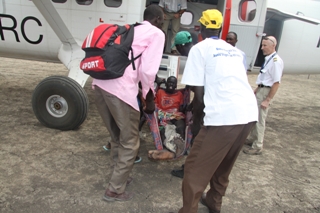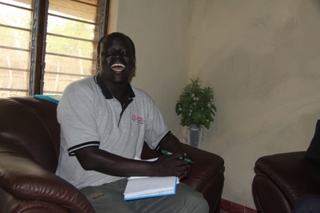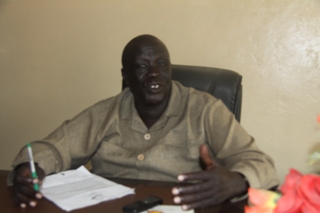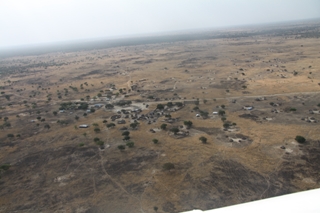Pibor and Akobo Commissioners call for peace in Jonglei
January 23, 2012 (PIBOR) – The commissioners of Pibor and Akobo Counties of Jonglei state have called upon their two rival ethic groups to stop retaliatory attacks after a month of violence.

Around 120,000 people have been affected by raids between the Luo-Nuer and Murle ethnic groups according to the UN.
The commissioner of the mainly Luo Nuer populated Akobo county, Goi Jooyul Yol, told Sudan Tribune on Monday that his county is ready for peace with their southern neighbours the Murle in Pibor.
Over New Year 8,000 Luo-Nuer armed men moved into Pibor raiding cattle and attacking villages in response to a Murle raid on their territory in August 2011. Before the December raids over 1,000 people had been killed in fighting between the two groups.

The formerly leader of the SSMD/A, the late George Athor, was responsible for arming both sides of the conflict in his bid to overthrow South Sudan’s government in Juba, Jooyul said.
The Akobo Commissioner said it was the issue of child abduction, common in Murle raids, that had triggered the massive Lou Nuer offensive into Murle territory.
Last year saw a spike in violence between the groups, Jooyul said, in comparison to 2010. This was due to the increase in arms, ongoing cattle raids revenge attacks and responding to child abduction he said.
PIBOR
The commissioner of Pibor County, Bridger General Joshua Konyi Irer, also called for an end to the violence claiming that the recent conflict had been fuled by politicians seeking to insert their interests.

Cattle raiding between the two groups goes back years but South Sudan’s two decade civil war with north Sudan left the region awash with weapons and with competition other resources.
In underdeveloped South Sudan, cows represent wealth and prestige and are used to pay dowries, making them essential to life in the world’s newest country.
Konyi claimed earlier this month that over 3,000 people, mainly women and children had been killed in the Luo-Nuer offensive, although this figure has been dismissed by the UN and the Juba government.
The Pibor Commissioner noted that some elements of the Luo-Nuer had described the raid on the Murle as being conducted by the Nuer White Army. Statements attributed to the group threatened the existence of the Murle.
At the height of the fighting the UN advised the Murle to flee the area as they did not have enough troops along with the South Sudanese military to protect them. Jonglei’s governor pointed out at the time that the government could not perform miracles as most of the army (SPLA) were positioned at the tense, contested border with north Sudan.
Since South Sudan seceded in July 2011 Juba has repeatedly accused Khartoum of arming southern rebels like Athor’s SSDM/A. The north denies this instead claiming that South Sudan backs their former allies in their territory north of the poorly demarcated border.

Konyi called upon young men from his Murle tribe to stop attacking their neighbouring counties like Akobo and to cease retaliatory attacks on Lou Nuer.
“This is time for peace”, he said appealing for the groups to let the government try and develop the area. “I do not want more dead – I say to youth of Murle to stop attacking because this government is yours”.
After conflict for most of Sudan’s post-colonial existence and chronic under investment war affected South Sudan is one of the poorest regions in the world.
Poor infrastructure, especially in Jonglei state, is making responding to the emergency even more difficult for the United Nations Mission in South Sudan. which lacks air capacity, and other aid agencies.
Commissioner Konyi repeated his claim that “3,141 people have been killed [in Pibor County] most of them are children, women and elderly people. We have 57, 303 people being displaced”.
Meanwhile, commissioner of Akobo county has not been so quick to give casualty estimates, so far declining to give figures. At the start of the conflict he was in the US receiving eye surgery.
(ST)
